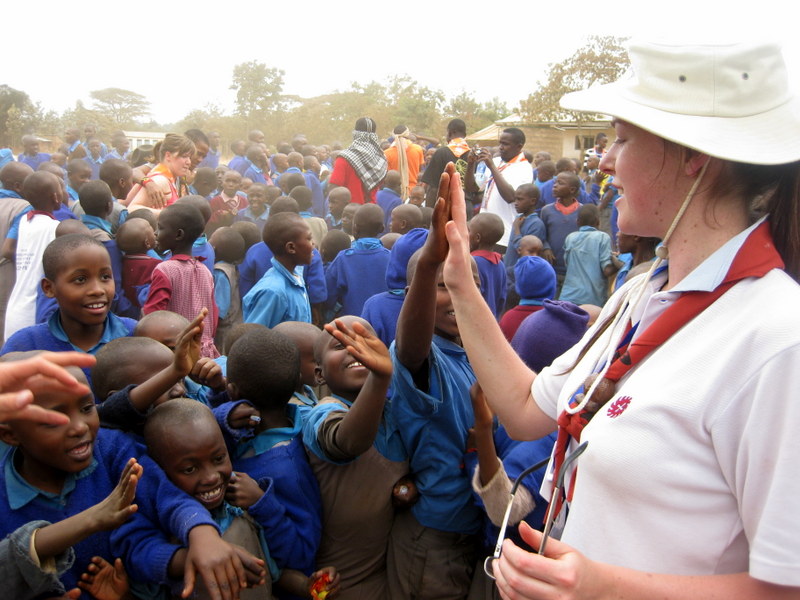Authored by Austin Klise
When I first arrived in Kenya, I felt it. It was unlike anywhere I’d traveled before. Smoky skies, a wet heat that sinks into your skin, and the noxious aroma of trash burning all greet you upon arrival.
I’ve both traveled and lived in Sub Saharan Africa and every time I get off the plane it feels like I’m in a different world. And this is especially true if you’re visiting West Africa.
West Africa is incredible, however, it isn’t for everyone. This is the western most region of Africa, which includes 16 countries, from Mauritania, Mali, and Niger, down to Nigeria, and everything to the west.
It doesn’t have a built up tourist infrastructure, outside of cities there often aren’t hotels or hostels, and it’s not easy to get around. So I’ve put together this guide to help you figure out whether traveling to this part of the world is right for you.
My number one advice if you’re planning to visit or live here, is to understand you are embarking on an adventure unlike anything else.
How To Travel in West Africa
Traveling in West Africa is All About the People
Currently I’m living in rural Sierra Leone in a village called Kailahun. The country is small to start with, and Kailahun is even smaller.
There isn’t an electrical grid, running water, and when I stroll around the village my very appearance (as a Caucasian person) can make young children cry, since they’ve never encountered a light skinned person before.
My situation in Sierra Leone isn’t unique. This is the type of adventure that greets most travelers to this part of the world. However, over time I’ve grown to enjoy traveling here, and I think it’s one of the last untapped travel destinations for backpackers looking for a true adventure.
Unlike traveling in Europe, North America, and other places, where the emphasis of travel is on food, scenery, and history, traveling in West Africa is all about the people.
While, this area has a rich history, good food, and beautiful landscapes, most of those things aren’t fully accessible unless you are willing to get to know the locals. Little is written down due to a rich oral history tradition and little tourism.
Image credit: Douglas Gritzmacher via USAID
Relationships Are King
Here, knowledge is stored minds, not in books. For example, if you go to Sierra Leone to hike Mount Bintumani (the highest peak in West Africa), you will have to talk to people.
First, you will need to figure out how to get to the village where the mountain is. Then you’ll greet the chief, then you’ll figure out who will be your guides. Along the trail you’ll meet people who will wonder what your doing and will likely invite you to share some food with them.
Just by being a visitor in this part of the world people will be curious. Seize that opportunity to form a relationship.
I work for the NGO First Things Foundation, which supports entrepreneurs in poor communities, and almost everyone of my contacts has come through simple conversation and previous relationships.
The math here isn’t complicated, it’s just different. It would be weird if I visited one of the villages where I am and kept to myself. The individualism that developed countries are used to, doesn’t exist in West Africa.
Community, traditions, and relationships are king.
People Will Stare
If you look like me (light skinned), people will stare. It can be uncomfortable to have people staring at you, but this part of the world is hardly visited by outsiders. Which is part of the draw!
Figure Out the Language
It’s very important when traveling in West Africa to figure out if you’ll be able to speak the language. The people in most African countries can either speak English or French — at least in the city.
If you don’t speak the language, that’s ok but it will help to learn a few phrases before you go.
Greeting culture is a big deal here. In a lot of African countries, people are used to greeting strangers, especially visitors. You can use this to your advantage. When someone greets you, greet them back. If they continue to talk to you, use that opportunity to see where the conversation leads.
Ditch Google, Ask a Local
If you want to go somewhere or do something, ask a local. Don’t try to Google everything you want to do. In West Africa, it likely won’t be on the internet, and if it is, it will likely be wrong.
Instead, find someone who you can talk to and inquire with them. What this will likely lead to is them calling a friend, who calls another friend, who knows someone who can help. This is totally normal and how things work.
Don’t Expect Comfort
Life can be hard. Poverty is endemic in this part of the world. Some people make less than 2 dollars a day in the village I live in.
However, it’s the same people who will invite you to share a meal or crash at their house if there isn’t a hotel. Don’t expect comfort, however rich relationships more than make up for it.
Image credit: Douglas Gritzmacher via USAID











